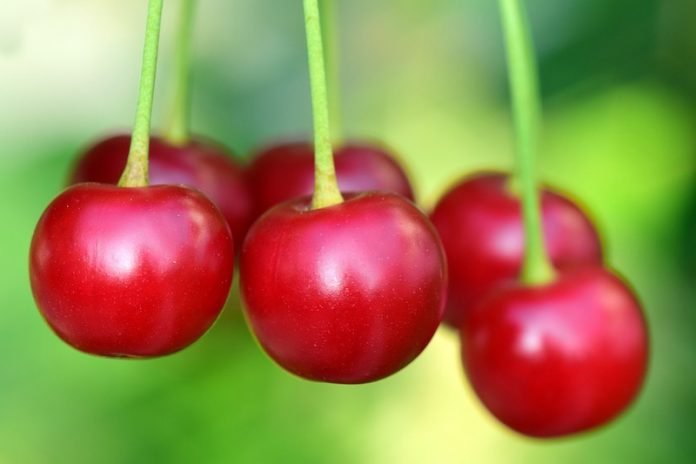
In a new study, researchers found that eating Montmorency tart cherries could benefit people with metabolic syndrome.
They found that eating the fruit could help improve systolic blood pressure, insulin levels, and insulin concentrations.
The research was conducted by a team from the University of Hertfordshire in Hatfield, UK.
Metabolic syndrome is a cluster of conditions that increase the risk of heart disease, stroke, and diabetes.
It includes high blood pressure and triglycerides, central obesity and insulin resistance.
It is estimated that about 35% of U.S. adults have metabolic syndrome.
The five criteria for metabolic syndrome include waist circumference > 35 inches for women or 40 inches for men, high or borderline high triglyceride levels, low levels of HDL, high blood pressure, and high fasting blood sugar.
In the current study, the team examined A group of 11 men and women aged 37-61. All of the people met at least three of the five criteria.
The participants consumed either Montmorency tart cherry juice, Montmorency tart cherry capsules or a placebo drink for 2 weeks.
The juice contained about 90-110 whole tart cherries and the capsules were made from about 100 whole tart cherries.
The researchers found that drinking Montmorency tart cherry juice led to a strong reduction in blood pressure 2 hours after consumption.
Both Montmorency tart cherry juice and Montmorency tart cherry capsules lowered insulin levels at 1 hour and 3 hours after consumption, respectively.
In addition, arterial stiffness was improved 2 hours after consumption of Montmorency tart cherry juice.
The team explains that the unique composition of tart cherries, including the synergistic influence of anthocyanins, other polyphenols, and fiber may all contribute to the benefits.
The finding may help develop a new, simple method to help people protect against metabolic syndrome.
The researchers suggest that more research is needed with a larger sample size in the future.
The lead author of the study is Terun Desai from the School of Life and Medical Sciences.
The study is published in the Journal of Functional Foods.
Copyright © 2019 Knowridge Science Report. All rights reserved.



